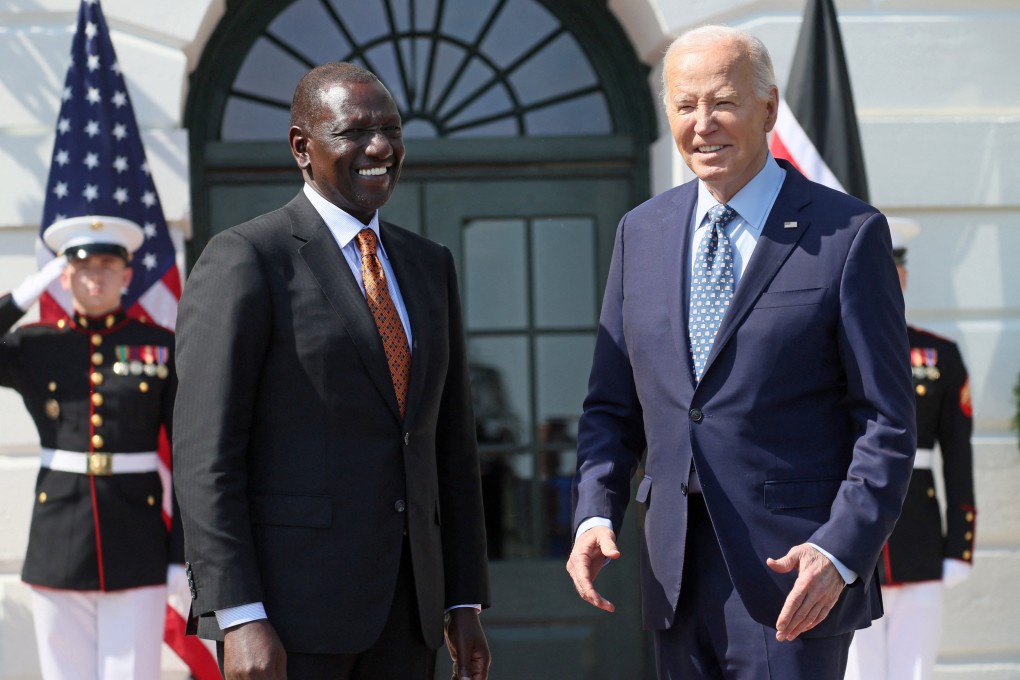US expected to designate Kenya as major non-Nato ally as Biden hosts Ruto in state visit
- Kenya would be the first sub-Saharan African country to receive designation from the US
- President William Ruto visits the White House in the first African state visit in 16 years

US President Joe Biden is expected to designate Kenya as a major non-Nato ally during a three-day state visit by Kenyan President William Ruto this week, a source familiar with the plans said.
Kenya would be the first sub-Saharan African country to receive the designation, reflecting Washington’s drive to deepen relations with the East African nation, which has long also had close relations with Russia and China.
As he welcomed Ruto to the White House for a meeting with business executives, Biden told reporters he planned to visit Africa in February, following the US presidential election.
The two leaders will meet again in the Oval Office on Thursday, followed by a joint news conference and a state dinner.

Ruto’s is the first state visit to Washington by an African leader in more than 16 years.